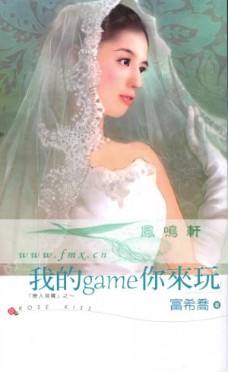my name is red-我的名字叫红-第21章
按键盘上方向键 ← 或 → 可快速上下翻页,按键盘上的 Enter 键可回到本书目录页,按键盘上方向键 ↑ 可回到本页顶部!
————未阅读完?加入书签已便下次继续阅读!
you’ve visited;” he said。 “What do they depict?”
61
A dreamy…eyed young painter who was ruling out pages in the corner; lost
in revery; raised his head from his folding work desk along with the others in
the room and gave me a look that said; “Let this be your most honest answer。”
Many of these craftsmen didn’t know the corner grocer in their own
neighborhood; or how much an oke’s worth of bread cost; but they were very
curious about the latest gossip East of Persia; where armies clashed; princes
strangled one another and plundered cities before burning them to the
ground; where war and peace were contested each day; where the best verses
were written and the best illustrations and paintings were made for centuries。
“Shah Tahmasp reigned for fifty…two years。 In the last years of his life; as you
know; he abandoned his love of books; illustrating and painting; turned his
back on poets; illustrators and calligraphers; and resigning himself to worship;
passed away; whereupon his son; Ismail; ascended to the throne;” I said。 “Shah
Tahmasp had been well aware of his son’s disagreeable and antagonistic
nature; so he kept him; the shah…to…be; behind locked doors for twenty years。
As soon as Ismail assumed the throne; in a mad frenzy; he had his younger
brothers strangled—some of whom he’d blinded beforehand。 In the end;
however; Ismail’s enemies succeeded in plying him with opium and poisoning
him; and after being liberated from his worldly presence; they placed his half…
witted older brother Muhammad Khodabandeh on the throne。 During his
reign; all the princes; brothers; provincial governors and Uzbeks; in short
everyone; started to revolt。 They went after each other and our Serhat Pasha
with such martial ferocity that all of Persia turned to smoke and dust and was
left in disarray。 Indeed; the present shah; bereft of money and intelligence and
half…blind; is not fit to sponsor the writing and illustration of illuminated
manuscripts。 Thus; these legendary illustrators of Kazvin and Herat; all these
elderly masters; along with their apprentices; these artisans who made
masterpieces in Shah Tahmasp’s workshops; painters and colorists whose
brushes made horses gallop at full speed and whose butterflies fluttered off
the page; all of these master binders and calligraphers; every last one was left
without work; penniless and destitute; homeless and bereft。 Some migrated to
the North among the Uzbeks; some West to India。 Others took up different
types of work; wasting themselves and their honor; and still others entered the
service of insignificant princes and provincial governors; all sworn enemies of
each other; to begin working on palm…size books containing at most a few
leaves of illustration。 Rapidly transcribed; hastily painted; cheap books
appeared everywhere; matching the tastes of mon soldiers; boorish pashas
and spoiled princes。”
“How much would they go for?” asked Master Osman。
62
“I hear that the great Sadiki Bey illustrated a copy of Strange Creatures;
missioned by an Uzbek spahi cavalryman; for only forty gold pieces。 In the
tent of a vulgar pasha who was returning from his Eastern campaign to
Erzurum; I beheld an album consisting of lewd pictures including paintings by
the virtuoso Siyavush。 A few great masters who hadn’t abandoned illustrating
were making and selling individual pieces; which weren’t part of any story at
all。 By examining such single leaves; you couldn’t tell which scene or which
story it represented; rather; you would admire it for its own sake; for the
pleasure of beholding alone。 For example; you might ment; ”This is the
exact likeness of a horse; how beautiful;“ and you’d pay the artist on this basis。
Scenes of bat or fucking are quite mon。 The price for a bustling battle
has fallen to three hundred silver coins; and there are hardly any interested
clients。 To sell pieces on the cheap and to better lure a buyer; some simply
draw in black ink on nonsized; unfinished paper with nary a brushstroke of
color。”
“There was a gilder of mine who was content as content could be and
talented as talent would allow;” said Master Osman。 “He saw to his work with
such elegance that we referred to him as ”Elegant Effendi。“ But he has
abandoned us。 It’s been six days; and he’s not to be found anywhere。 He’s
plain disappeared。”
“How could anyone quit such a workshop as this; such a joyous hearth?” I
said。
“Butterfly; Olive; Stork and Elegant; the four young masters whom I’ve
trained since they were apprentices; now work at home at Our Sultan’s
behest;” said Master Osman。
This apparently came about so they could work more fortably on the
Book of Festivities with which the entire workshop was involved。 This time; the
Sultan hadn’t arranged for a special workspace for His master miniaturists in
the palace courtyard; rather; He decreed that they work on this special book at
home。 When it occurred to me that this order was probably issued for the sake
of my Enishte’s book; I fell silent。 To what degree was Master Osman making
insinuations?
“Nuri Effendi;” he called to a pale and hunched painter; “present Our
Master Black with a ”survey‘ of the workshop!“
The “survey” was a regular ritual of Our Sultan’s bimonthly visits to the
miniaturists’ atelier during that exciting time when His Excellency had intently
followed what transpired at the workshop。 Under the auspices of Haz?m; the
63
Head Treasurer; Lokman; the Head Poetic Chronicler and Master Osman; the
Head Illuminator; Our Sultan would be apprised of which pages in which
books the masters were working on at any given moment: who did which
gilding; who colored which picture; and one by one; how the colorists; the
page rulers; the gilders and the master miniaturists; whose talent allowed
them to acplish miracles; were engaged。 It saddened me that they were
holding a fake ceremony in place of the one that was no longer performed
because age and ill health bound the Head Poetic Chronicler Lokman Effendi;
who wrote most of the books which were illustrated; to his home; because
Master Osman often disappeared in a cloud of indignation and wrath; because
the four masters known as Butterfly; Olive; Stork and Elegant worked at home;
and because Our Sultan no longer waxed enthusiastic like a child in the
workshop。 As happened to many miniaturists; Nuri Effendi had grown old in
vain; without having fully experienced life or bee a master of his art。 Not
in vain; however; did he spend those years over his worktable being
hunchbacked: He always paid close attention to




